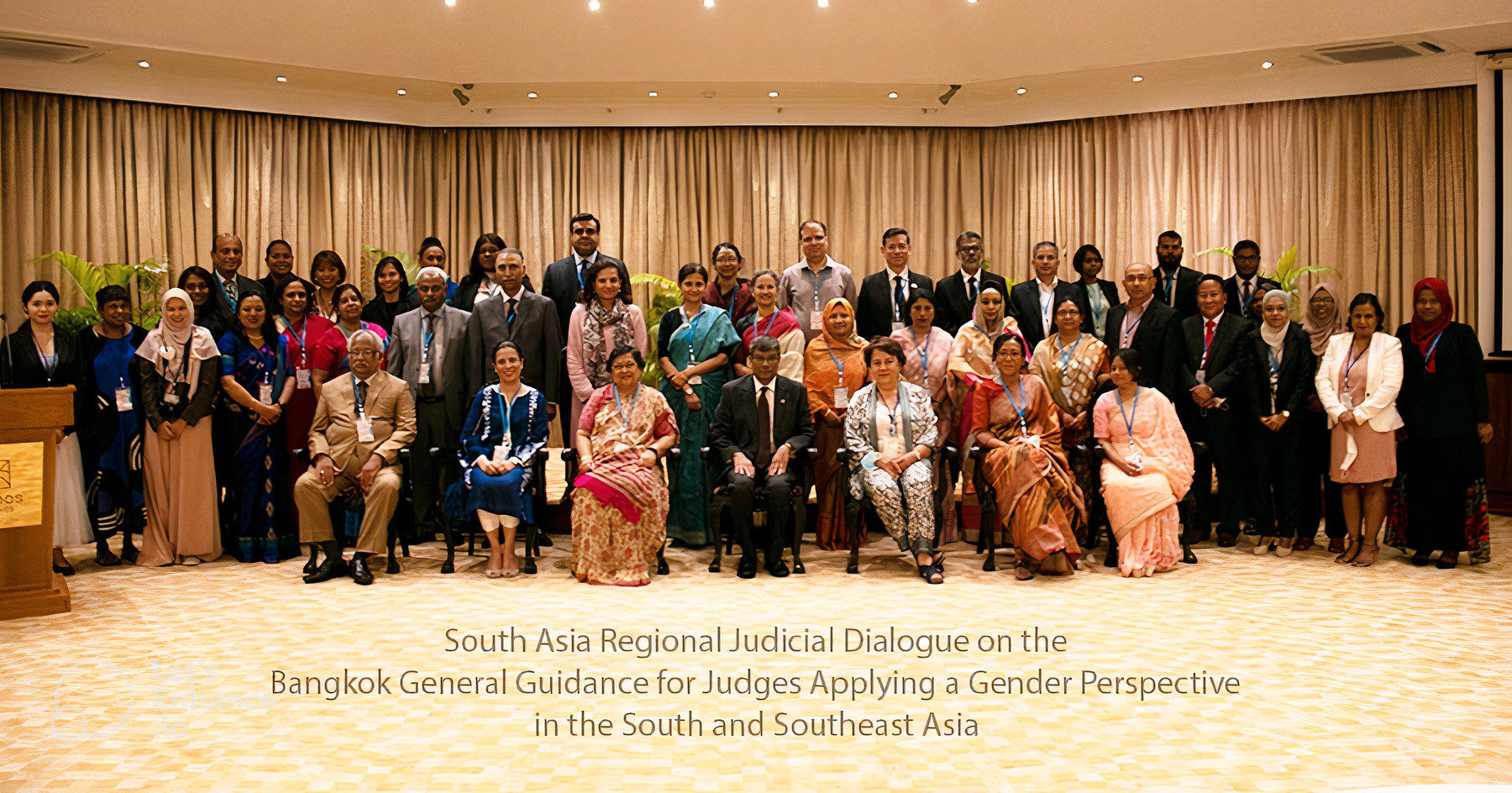On 28 – 29 May, the ICJ convened a South Asia Judicial Dialogue with the participation of thirty South Asian judges from Bangladesh, India, Maldives, Nepal, and Pakistan to discuss the implementation of the Bangkok General Guidance for Judges in Applying a Gender Perspective (BGG).
The BGG is a set of recommendations developed by judges from four Southeast Asian countries in an effort to strengthen judicial decision-making processes that are based on gender equality and freedom from discrimination.
The Honorable Justice Ahmed Muthasim Adnan, Chief Justice of the Supreme Court of the Maldives in his opening address encouraged the participants to become gender champions and use the dialogue as a platform for knowledge exchange.
The ICJ’s Kaajal Ramjathan-Keogh, Senior International Legal Advisor for the Women’s Access to Justice Project and Director of the Africa Regional Programme explained that the BGG was developed to help eliminate discrimination and assist judges in ensuring equal access to justice for all women.
The BGG encourages judges to “consider evidence without resorting to gender stereotypes and decide cases based on the principle of equality recognized under international human rights standards, including the Convention on the Elimination of All Forms of Discrimination against Women (CEDAW).” It also contains recommended institutional policies that courts may adopt for gender sensitivity and responsiveness. The BGG emphasizes that customs and traditions should not be invoked to justify discrimination against women.
Irrespective of the formal status of the BGG, judges were encouraged to apply the main contents of the BGG in their own court rooms and decision-making processes.
The ICJ’s successful conclusion of this Judicial Dialogue is a major step towards the institutional adoption of the BGG by the Judiciaries of South Asia. A widespread application of the gender perspective will contribute to the elimination of myths and stereotypes, and help in the fulfillment of gender equality and the non-discriminatory realization of human rights. In addition, the BGG will help promote fairness in the adjudication of cases, which will in effect allow equal opportunity, equal access and equal outcomes in the dispensation of justice to those whose rights are at risk because of their gender.
The event was hosted by ICJ’s Women’s Access to Justice Project in collaboration with the Supreme Court of the Maldives. The project operates in South and Southeast Asia with generous support from the Swedish International Development Cooperation Agency (SIDA) with project partners UN Women and the OHCHR.
The judicial dialogue programme also included the following presentations:
- International Standards on Eliminating Gender Discriminatory Attitudes and Biases in Justice Delivery and Women’s Access to Justice facilitated by ICJ Commissioner and Vice-Chair of the UN Committee on the Elimination of Discrimination against Women, Nahla Haider El Addal.
- Equality, Non-discrimination & State Obligations facilitated by Justice Ayesha M. Malik of the Supreme Court of Pakistan.
- Gender Stereotyping presented by Former Acting Chief Justice Shiranee Tilakawardane of the Supreme Court of Sri Lanka.
- The Basic Concepts of the BGG presented by Justice Sapana Pradhan Malla of the Supreme Court of Nepal.
- The General Guidance for the Application of a Gender Perspective in Judicial Decision-Making discussed by Justice Aisha Shujune Mohammed of the Supreme Court of the Maldives.
- Institutional Policies to Enhance Women’s Access to Justice presented by Former Chief Justice Gita Mittal of the High Court of Jammu and Kashmir.
- Experience sharing: Adoption of the SEA Bangkok General Guidance including a presentation by Justice Takdir Rahmadi, Chairperson of the Resource Development Chamber under the Supreme Court of Indonesia and Chairperson of the Supreme Court Working Group on Women and Children’s issues, facilitated by Judge Amy Alabado Avellano of the Philippines.




